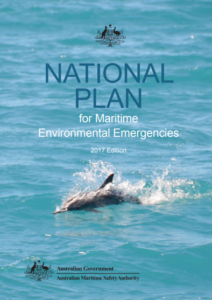Australia depends heavily on shipping to transport its exports and imports. The country now published the National Plan, which deals with other aspects of maritime emergency response such as search and rescue, saving of life at sea, and caring for survivors brought to shore.
The National Plan for Maritime Environmental Emergencies (National Plan) establishes national arrangements, policies and principles, to manage maritime environmental emergencies. It creates for a comprehensive response to maritime environmental emergencies regardless of how costs might be attributed or recovered.
[smlsubform prepend=”GET THE SAFETY4SEA IN YOUR INBOX!” showname=false emailtxt=”” emailholder=”Enter your email address” showsubmit=true submittxt=”Submit” jsthanks=false thankyou=”Thank you for subscribing to our mailing list”]
The National Plan aims to meet the following principles:
- Protect the community, environment and maritime industries: The National Plan provides a comprehensive response arrangement to limit the impacts of marine pollution from vessels and oil spills from offshore petroleum facilities, as well as other environmental impacts caused by a maritime environmental emergency;
- Give effect to relevant international conventions;
- Integrate with the Australian Emergency Management Arrangements: The Australian Emergency Management Arrangements describe how Australia deals with the risks and impacts of dangers through a collaborative approach between the Commonwealth, states and, Northern Territory and local governments; business and industry; and the community;
- Provide a comprehensive management arrangement;
- Provide a single integrated response arrangement: The management of maritime environmental emergencies is a responsibility of all levels of government, industry and business, the non-government sector and the community;
- Implement a risk management approach: The starting point for limiting the effects of maritime environmental emergencies lies in the understanding of the specific dangers and the social, environmental, cultural and heritage, infrastructure and economic vulnerabilities presented by these events;
- Implement the polluter pays principles;
- Provide for stakeholder engagement: The National Plan recognises that a range of stakeholders may be affected by a maritime environmental emergency and early engagement is crucial for preparedness, response and recovery. For this reason, the National Plan is underpinned by formal stakeholder engagement through the governance arrangements, community engagement and education programmes.
You may see more details in the PDF below































































